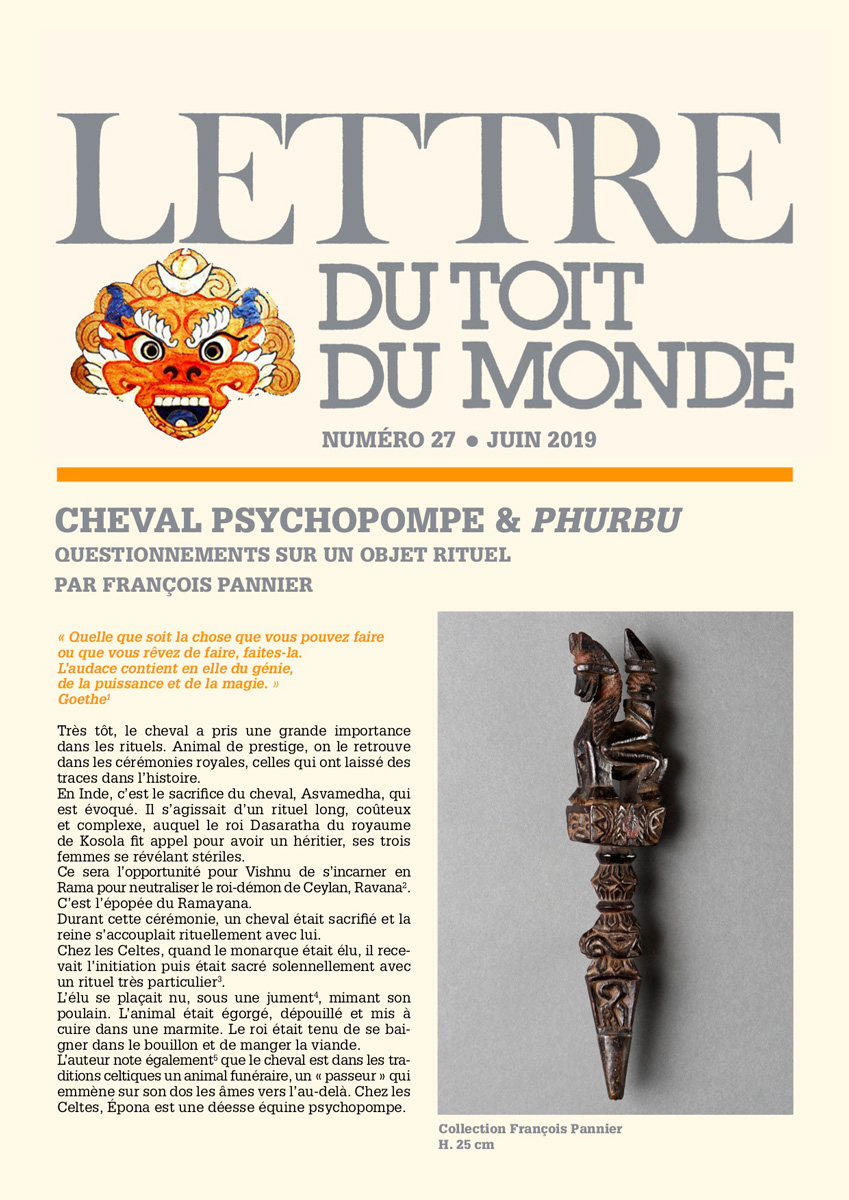
Consulter
LETTRE-TDM-n°27: THE PSYCHOPOMP HORSE & THE PHURBU OBSERVATIONS ON A RITUAL OBJECT
By François Pannier
"Whatever it is you can do, or that you dream of doing, do it.
There is genius, power and magic in audacity"
Goethe1
Very early on, the horse became very important in rituals. It was a prestige animal, encountered in royal ceremonies that marked history.
In India, it was the sacrifice of Asvamedha, the horse, that was evoked. This was a long, complex and expensive ritual which King Dasaratha of the Kingdom of Kosola made use of to find an heir when all three of his wives proved to be sterile.
It would represent an opportunity for Vishnu to incarnate himself in Rama to neutralize Ravana,2 the demon-king of Ceylon. It is the Ramayana epic.
A horse was sacrificed in the course of this ceremony and the queen had ritual intercourse with it.
Among Celtic peoples, when a monarch was elected, he was initiated and then consecrated with a very specific ritual.3
The chosen one placed himself naked beneath a mare,4 mimicking her foal. The animal's throat was slit, its carcass prepared, and it was cooked in a large pot. The new king was required to bathe in the broth and to eat the meat.
The author has also noted5 that the horse is a funerary animal in Celtic traditions, and a "passer" who moves souls to the world beyond on his back. Among the Celts, Epona is an equine psychopomp goddess.
He also mentions the Gundestrup6 vase, on which one sees foot soldiers in single file before a large cauldron, into which they are being thrown by a divinity. They emerge from it as cavalrymen.
This observation led him to write: "This change of state shows that they do not go back to their former life but gain access to another one, in which their condition is more elevated. The fact of being on horseback symbolizes both nobility and the fact of being deceased (since the horse is the psychopomp animal)."











